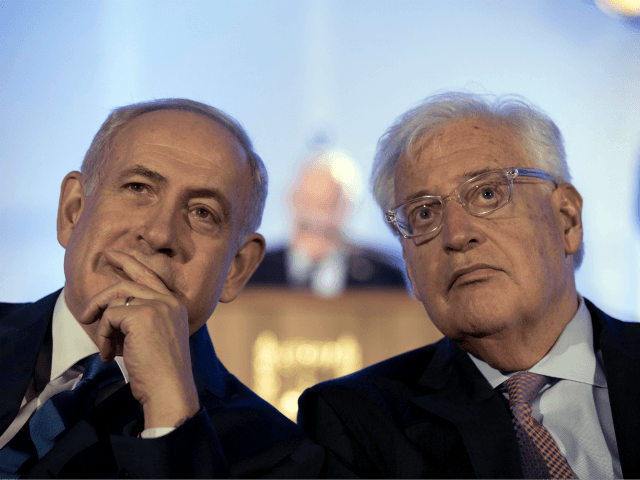TEL AVIV – U.S. support for Israel’s annexation of Jewish settlements in the West Bank is contingent on Prime Minister Benjamin Netanyahu extending a hand to Palestinian Authority President Mahmoud Abbas to restart negotiations, U.S. Ambassador to Israel David Friedman said during a wide-ranging interview in The Jerusalem Post.
The negotiations will be based on the Trump administration’s peace proposal which sees a Palestinian state established in 70 percent of the West Bank.
According to Freidman, the U.S. would back annexation as long as the joint US-Israeli mapping committee established in February had finished its work.
In February, Friedman made it clear that unilateral annexation may endanger the peace plan and insisted on the establishment of a mapping committee.
The purpose of the commission, he said, was to turn the peace plan’s “conceptual map” into a detailed map that ensures “you can have contiguous territory” for a Palestinian state.
In remarks made later that month, Netanyahu said that a joint U.S.-Israeli mapping committee had begun working.
Netanyahu and Blue and White leader Benny Gantz signed a coalition agreement to form a unity government Monday night, ending a year and a half political deadlock.
According to the terms of the deal, the issue of annexation can be voted in the Knesset on July 1 at the earliest, “after discussion between the prime minister and alternate prime minister” and with the U.S.’ consent.
Friedman told the Post that second condition for the U.S.’ support is for Netanyahu to “show he is committed to U.S. President Donald Trump’s peace plan and all it entails, including freezing settlement activity outside the 30% of Judea and Samaria delineated by the mapping committee, and express a willingness to negotiate with the Palestinians to form a state in the rest of the West Bank,” the report said.
“Netanyahu needs to communicate that to [Abbas],” Friedman said. “The expectation is that the prime minister will agree to negotiate, and if the Palestinians show up he will negotiate in good faith based on this plan.”
“I don’t see this as anything more than a commitment by the prime minister,” the ambassador added.
“As a new government is formed, it would be appropriate for [support for the Trump plan] to be re-upped by the leader, and then to proceed in good faith on that basis.”
However, he added that the Palestinians’ response to Netanyahu’s offer of negotiations would not impact the U.S.’ support for annexation.
“If the Palestinians refuse to show up, I’m not sure what else the prime minister can do, but I think there ought to be an unequivocal communication to the Palestinians that they are invited to negotiate in good faith on the president’s vision,” he said.
Friedman said he was confident that annexation could begin by July 1, but that the ball lay in Israel’s court.
“We will be ready to address this issue if Israel is ready,” he said. “Ultimately, as Secretary [of State Mike] Pompeo said, it’s Israel’s decision. They have to decide what they want to do.”
The Trump administration’s peace proposal sees Israel annexing 30 percent of the West Bank which Friedman emphasized includes “areas essential to Israel’s Biblical DNA” – and the entire Jordan Valley.
A contiguous but demilitarized Palestinian state would be established on most of the West Bank with parts of eastern Jerusalem that are outside the Israeli security fence as its capital.
The Palestinians would receive an economic package to the tune of $50 billion if they agreed to the terms of the deal which include stopping incitement to terror and ending their so-called “pay-for-slay” scheme paying financial stipends to convicted terrorists and their families.

COMMENTS
Please let us know if you're having issues with commenting.